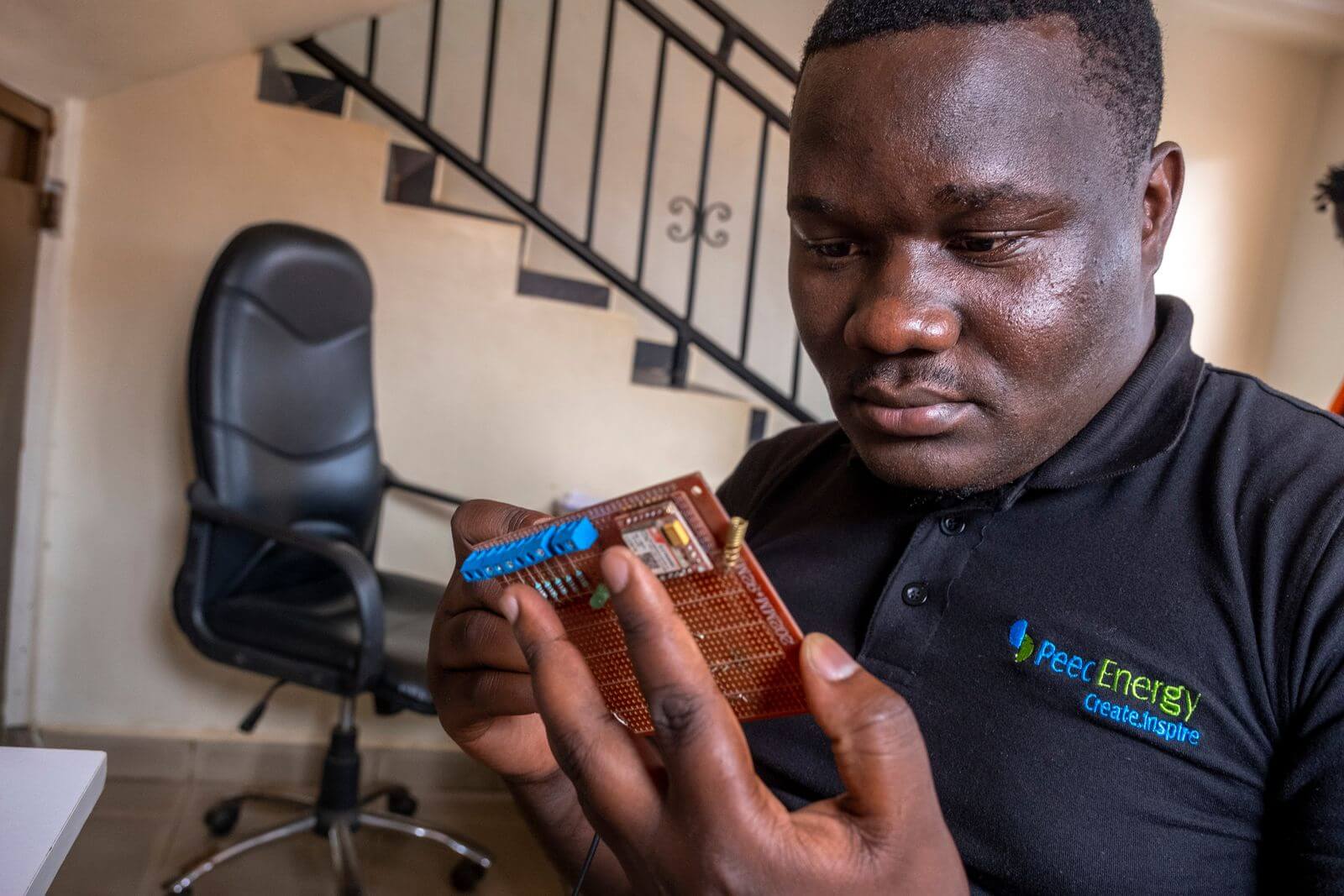Philip Kyeswa, a design engineer, and his co-founders developed Peec REM to address a major gap in a fast growing industry.
While solar mini-grids are ideal for multi-residential complexes in remote areas that don’t have access to grid electricity, a major barrier to entry for solar installations is managing the sale of electricity to users, and monitoring the grid remotely.
Steady electricity supply has been linked to improved education, employability, sustainable income and wealth creation. With renewable grids increasingly used across sub-Saharan Africa, monitoring, metering and payment systems that are appropriate to local needs are increasingly in demand.
Peec REM transmits real-time data, and in the case of emergencies, a utility operator is able to respond immediately to blackouts or tampering. Meters are sold to mini-grid developers and operators who need to connect households to their installations and sell electricity to consumers in a secure and reliable way. Peec REM is then maintained by Kyeswa and his team on a monthly subscription model.
The system has been tested by 23 mini-grid operators around Uganda, and Kyeswa and his team are now preparing to scale up their presence in the market.
The next step for Kyeswa and Peec REM is to use artificial intelligence and machine learning to predict maintenance issues on mini-grid systems, making upkeep even more reliable. Within five years, he aims to build the business across Uganda and then scale out across East Africa.

“We have the potential to impact millions of people living in off-grid areas by making mini-grid installations more practical and locally appropriate. There’s so much room for growth and local adaptations in East Africa to really make the most of new technologies and bring power to more households.”
Philip Kyeswa


